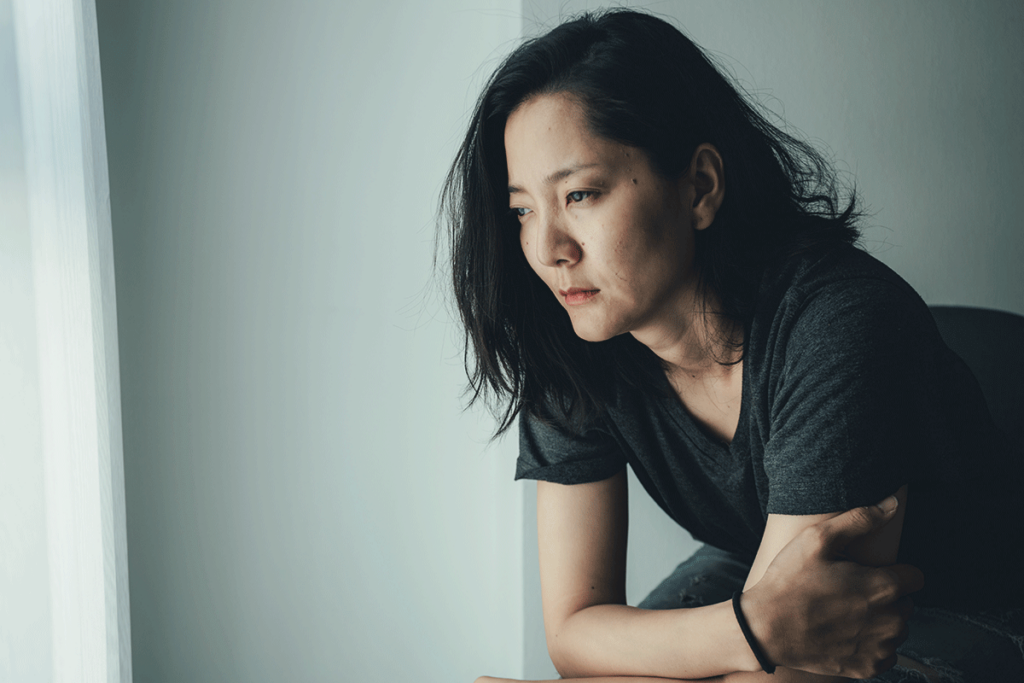The Willows at Red Oak Recovery®’s bipolar disorder treatment program is focused on young women who need a longer-term treatment plan. Our program is specifically designed to address the unique challenges and needs of young adults with bipolar disorder. To learn more about how we help our clients heal and thrive, call 828.518.6941. Let us guide you or a loved one to a successful treatment program that will return you to health and well-being.
The Stigma of Bipolar Disorder
Due to media portrayals and societal misconceptions, bipolar disorder is often stigmatized and misunderstood. People with bipolar disorder may feel ashamed or embarrassed about their condition, leading them to hide their symptoms and avoid seeking treatment. This can be incredibly challenging for young adults still navigating their identity and place in the world.
Women, in particular, may face additional challenges and stigma when it comes to bipolar disorder. Studies have shown that women tend to experience more severe symptoms and have a higher risk of comorbid disorders, such as anxiety and eating disorders. There are a lot of misconceptions surrounding women and mental health, rooted in sexism and gender stereotypes. This can make it even more difficult for young women with bipolar disorder to feel understood and accepted.
How Bipolar Disorder Differs in Women
Bipolar disorder affects women differently than men:
Women are likelier than men to experience rapid cycling
Rapid cycling means rapid changes in mood between mania and depression, as often as four complete depressive-manic cycles in a single year. Men are less likely to cycle rapidly.
Women tend to develop bipolar disorder later in life
For women, late-onset bipolar disorder, which means it does not appear till the 40s or later, is not uncommon.
Women are misdiagnosed more often than men
Up to 40% of bipolar cases are misdiagnosed.1 This is in part because of the differences between the way women and men experience bipolar disorder combined with the fact that, for a very long time, researchers used men almost exclusively in their medical studies.
Women often experience hormonally influenced fluctuations in their symptoms
Menstruation, pregnancy, postpartum, or menopause can worsen bipolar disorder symptoms in women. Often, it is not until pregnancy or postpartum that women are diagnosed at all.
Three Common Bipolar Disorder Signs in Young Women
If you are concerned about bipolar disorder in a female friend or family member or are a young woman trying to navigate confusing symptoms, consider the following three signs:
- Lengthy episodes of depression with infrequent interludes during which depression lifts, and you experience an improved mood, more energy, and better sleep without intense mania
- Extreme and difficult to tolerate shifts in mood around your period, during pregnancy, or postpartum
- Rapid cycles, so that when your depressive and manic phases cycle several times per year
At the Willows, we treat women exclusively and are familiar with the ways that bipolar disorder manifests for women.
The Willows at Red Oak Recovery® Can Help
Call The Willows at 828.518.6941 if you are concerned that you or a loved one may have bipolar disorder. We offer a customized treatment plan for women, including 90+ day residential treatment and comprehensive aftercare services. Our compassionate and experienced staff are dedicated to helping young women heal from bipolar disorder and achieve lasting recovery.
What to Expect at The Willows
Our 90+ day residential treatment program provides a safe and supportive environment for women to address bipolar disorder. Our treatment approach includes individual therapy, group therapy, medication management, and holistic therapies such as yoga and mindfulness practices. We also offer aftercare services, including transitional living options, to support our clients as they transition back into daily life after completing the residential program. Our goal is to provide our clients with the tools and skills they need to manage their bipolar disorder and maintain long-term recovery.
The Importance of Long-Term Treatment
Bipolar disorder is a complex condition that requires comprehensive treatment and ongoing support. While short-term treatment programs may provide immediate relief, they often do not address the underlying issues and can result in relapse.
Our longer treatment period allows our clients to fully immerse themselves in the healing process and develop essential skills for managing their condition. We understand that recovery is not just about finding stability but also learning how to maintain it in the long run.
Our aftercare and transitional living programs also play a crucial role in supporting our clients as they continue to navigate life after treatment. We provide ongoing therapy and support to help our clients build upon their progress during their residential program.
Call The Willows Today to Begin Treatment
If you or a loved one is struggling with bipolar disorder, know that there is hope for healing and a fulfilling life. The Willows at Red Oak Recovery® is here to support you. Call us at 828.518.6941 or reach out online today.




